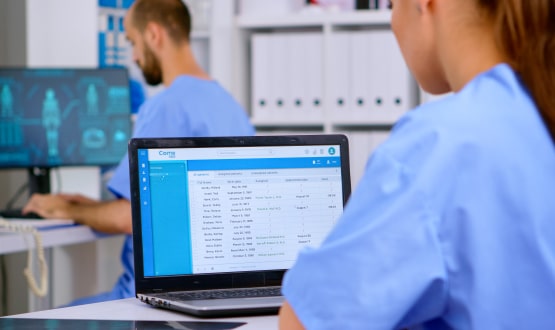Epsom and St Helier rejects Cerner
- 23 July 2009
 |
|
Epsom and St Helier University |
Epsom and St Helier University Hospitals NHS Trust has decided to remain one of the ‘iSoft7’, rejecting the option of switching to Cerner Millennium.
The trust said the cost of a switch would be in the region of £4-5m and carried a high level of risk.
Epsom and St Helier is the first of the iSoft7 known to have rejected the local implementation model for Millennium that is being developed for London.
The iSoft7 are the seven ‘out of cluster’ NHS trusts in London and the South that had installed iSoft systems ahead of the National Programme for IT in the NHS.
Under a contract negotiated by NHS Connecting for Health, they are supported by Computer Sciences Corporation, the LSP for the North, Midlands and East of England.
New board papers seen by E-Health Insider state: “The risks of changing systems, based on the experience of London hospitals to date, is too high.”
The papers argue that London trusts that have implemented Cerner with local service provider BT have been “damaged”. They also say the new local implementation model remains unproven and carries high costs for trusts.
The papers say: “The implementations of CM [Cerner Millennium] in London have had a damaging effect on trusts, which has led to the creation of a new deployment model, which has yet to be tested on a deployment.”
Against this background, the trust feels the £4-5m projected cost of switching to the centrally procured and funded Cerner Millennium system cannot be justified.
“The cost of a change is likely to be around £4-5m, which would require a business case which is not credible…” the board papers say, adding that the NPfIT may “change shape” over the next 18 months.
In March 2006, Epsom and St Helier signed a Declaration of Intent (DOI) with CfH that effectively removed it from the London cluster arrangements for the provision of IT systems.
The DOI allowed the trust to review its strategy during 2009. A ‘break point’ in the contract would have allowed it to opt back into the London arrangements if it proved “advantageous to do so.”
In December 2008, the trust executive committee appointed a ‘task and finish group’ of lead clinicians and IT staff to review the trust’s IT strategy and assess the functionality offered by the London solution.
The review, governed by Epsom and St Helier’s clinical stakeholders, concluded that the best available option would be to keep iSoft’s Patient Manager and Clinical Manager, even though they were not yet fully used, and to try to achieve more benefits.
The trust will now continue with iPM and iCM for the “medium term,” which is expected to be three to five years.
Over the past four years, the trust has begun to use iCM for order communications with electronic requests for pathology and radiology tests in all inpatient, day case, and A&E settings.
It has also used the system to introduce electronic prescribing for ‘to take out’ drugs and electronic discharge summaries. It has further developed an iCM electronic document store into which documents can be stored or posted against a patient’s electronic record.




